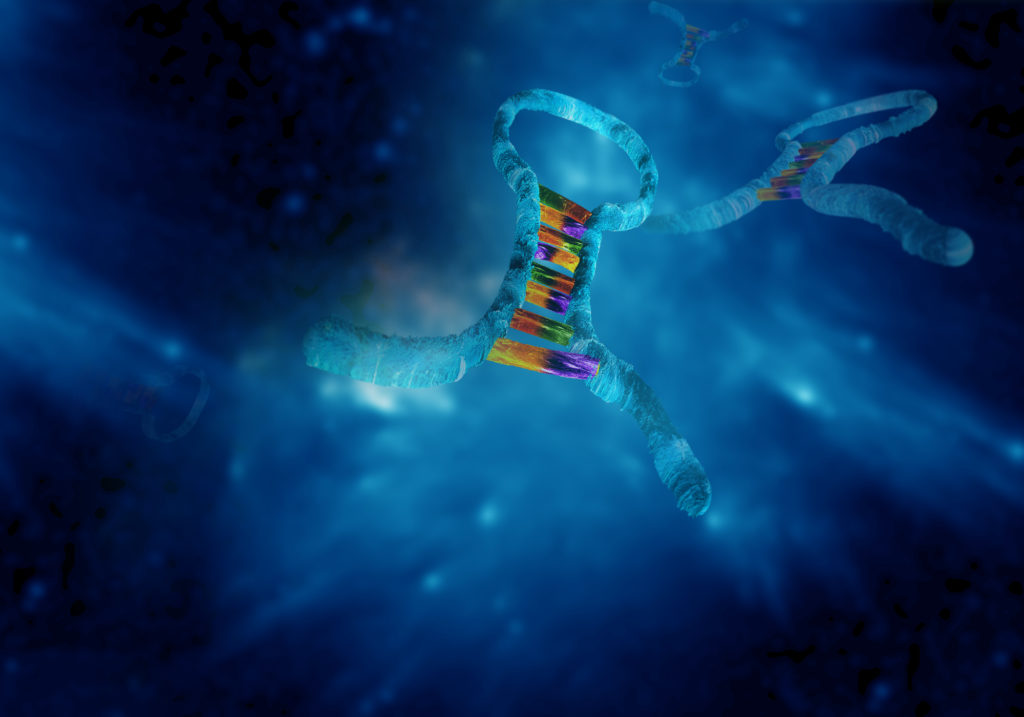In this webinar, the featured speaker will discuss the process of biomarker and companion diagnostic development including machine learning approaches in different gastrointestinal cancers and their translational relevance.
Participants will learn about:
- An overview of gastrointestinal tumor types
- Challenges of biomarker identification
- Classification of tumors based on cell-of-origin/phenotype, therapeutic response and prognostic gene signatures
- Applications of machine learning approaches in companion diagnostic development
Speaker

Anguraj Sadanandam, PhD, Team Leader, Systems and Precision Cancer Medicine Team, Division of Molecular Pathology, Institute of Cancer Research (ICR)
Dr. Anguraj Sadanandam leads the Systems and Precision Medicine team at the Institute of Cancer Research (ICR) in London, with a tenured position equivalent to that of Associate Professor. He has an honorary appointment at the Centre for Molecular Pathology (CMP) of the Royal Marsden Hospital (RMH) in London and a research collaborator position at the Mayo Clinic in the US. His team focuses on stratified and precision/individualized cancer therapy by developing biomarkers and companion diagnostic assays based on inter- and intra-tumoral and stromal/immune heterogeneity and tumour dynamics. They use cutting-edge interdisciplinary sciences involving wet-lab, computational and clinical biology, and genome-phenome integrative data science.
Dr. Sadanandam completed his interdisciplinary (wet-lab and computational biology) PhD in the US and continued his post-doctoral studies under Professors Joe Gray and Douglas Hanahan (USA and Switzerland). He briefly worked at the Swiss Institute of Bioinformatics.
Who Should Attend?
This webinar will appeal to individuals with the following or related job titles:
- Research Scientists
- Clinical Researchers
- Medical Researchers
- Industry Scientists
- Lab Directors/PI
- Post Doc Students
- Grad Students
- Oncologists
Working in the following research areas:
- Biomarker discovery
- Companion diagnostics
- Molecular Pathology
- Oncology
- Machine learning
- Stratification and subtypes
- Precision Medicine
What You Will Learn
Participants will learn about:
- An overview of gastrointestinal tumor types
- Challenges of biomarker identification
- Classification of tumors based on cell-of-origin/phenotype, therapeutic response and prognostic gene signatures
- Applications of machine learning approaches in companion diagnostic development
Xtalks Partner
NanoString
NanoString Technologies (NASDAQ: NSTG) is a publicly held provider of life science tools for translational research and molecular diagnostics. The company’s technology enables a wide variety of basic research, translational medicine and in vitro diagnostics applications.
NanoString’s products are based on a novel digital molecular barcoding technology invented at the Institute for Systems Biology (ISB) in Seattle under direction of Dr. Leroy Hood. The company was founded in 2003 with an exclusive license to develop and market the technology. In 2008, NanoString launched its first commercial instrument system and began international sales operations with its first multiplexed assays for gene expression analysis. In 2010, the company launched new applications for the system to support microRNA analysis and copy number variation detection, and in 2013 launched Prosigna®, its first in vitro diagnostic product for prognosis of early-stage breast cancer.
Organizations performing cancer research, biomarker validation and screening, and next-generation sequencing validation are rapidly adopting the nCounter® Analysis System. By providing simple, multiplexed digital profiling of single molecules, the NanoString platform represents a natural, digital downstream companion to next-generation sequencing and enables researchers to embark on studies that were previously inconceivable.
Leading researchers and institutions are finding that NanoString’s nCounter system provides the ideal platform on which to validate their discoveries and translate them into clinically useful diagnostic assays. The nCounter system is uniquely positioned to support translational research because it provides more reproducible results than methods requiring amplification, and generates high-quality data from the difficult sample types common in clinical research, including Formalin-Fixed Paraffin-Embedded (FFPE) tissues.
In addition to continuing to extend the applications for the nCounter system in the discovery, target validation and routine testing segments of the genomics research market, the company’s goal is to become the platform of choice for diagnostic testing based on multiplexed gene signatures that can be offered in hospitals and pathology laboratories worldwide, following appropriate regulatory approvals. These two synergistic areas of business focus provide researchers with a seamless transition from discovery to diagnostics.
You Must Login To Register for this Free Webinar
Already have an account? LOGIN HERE. If you don’t have an account you need to create a free account.
Create Account




